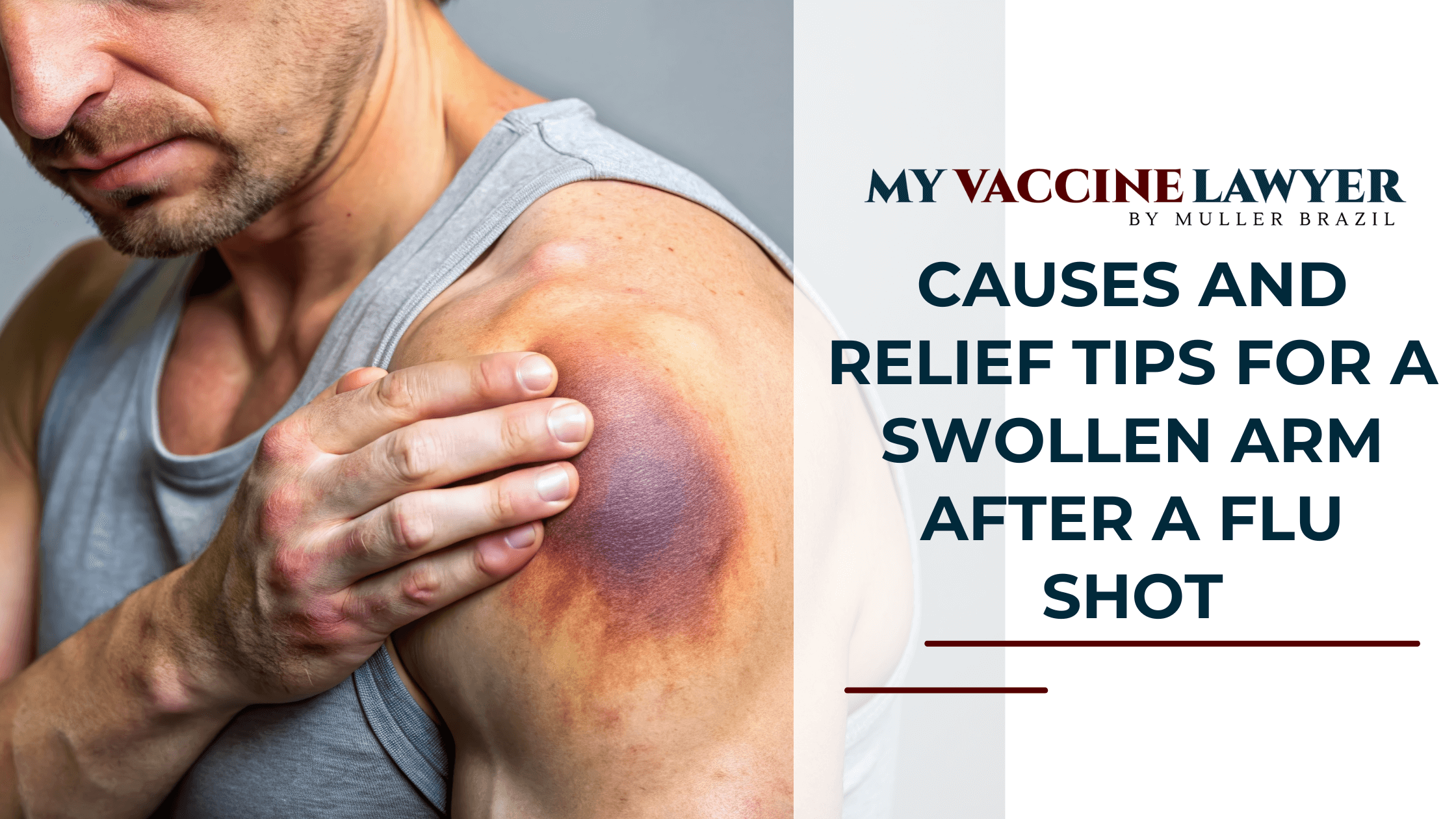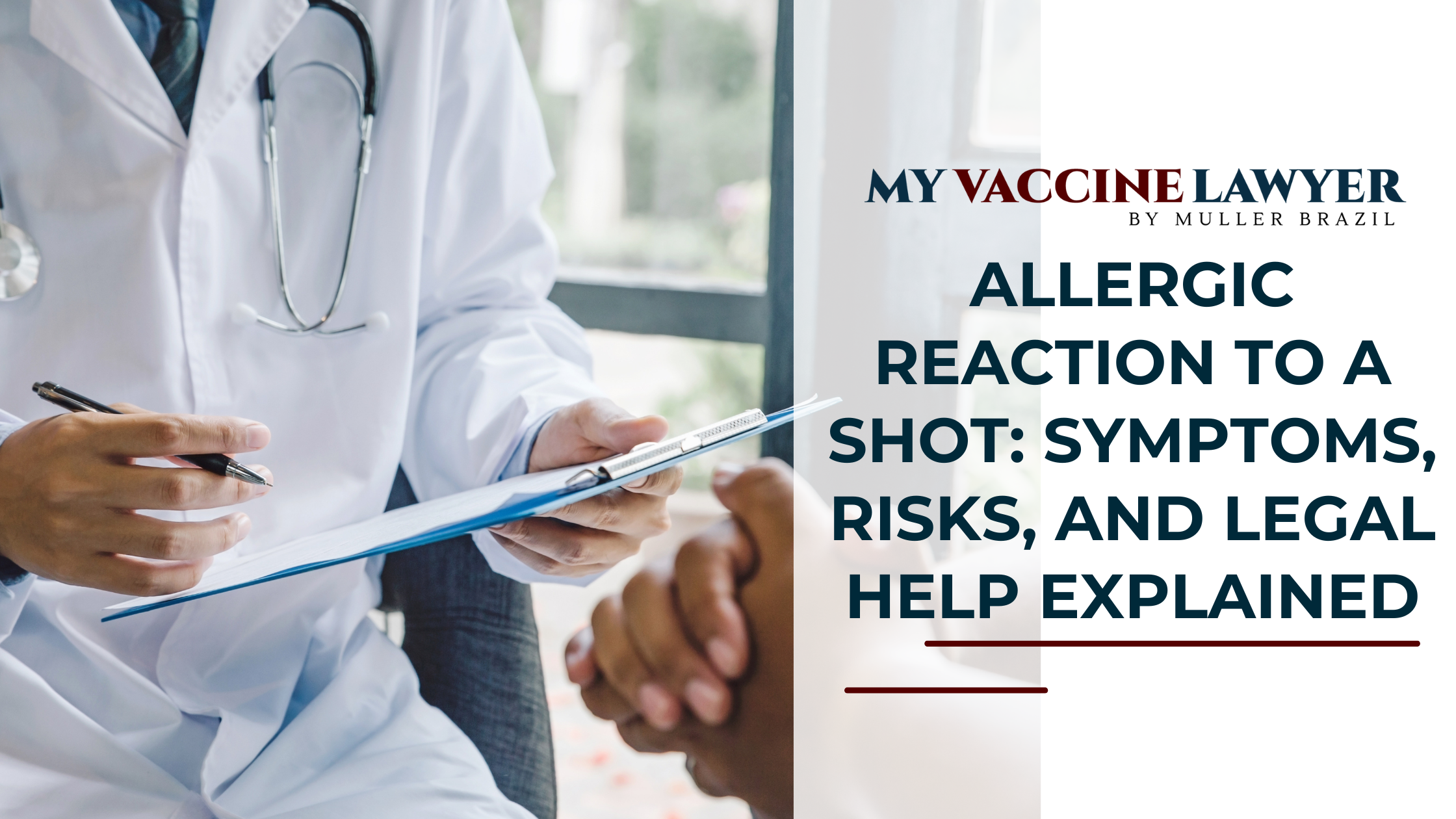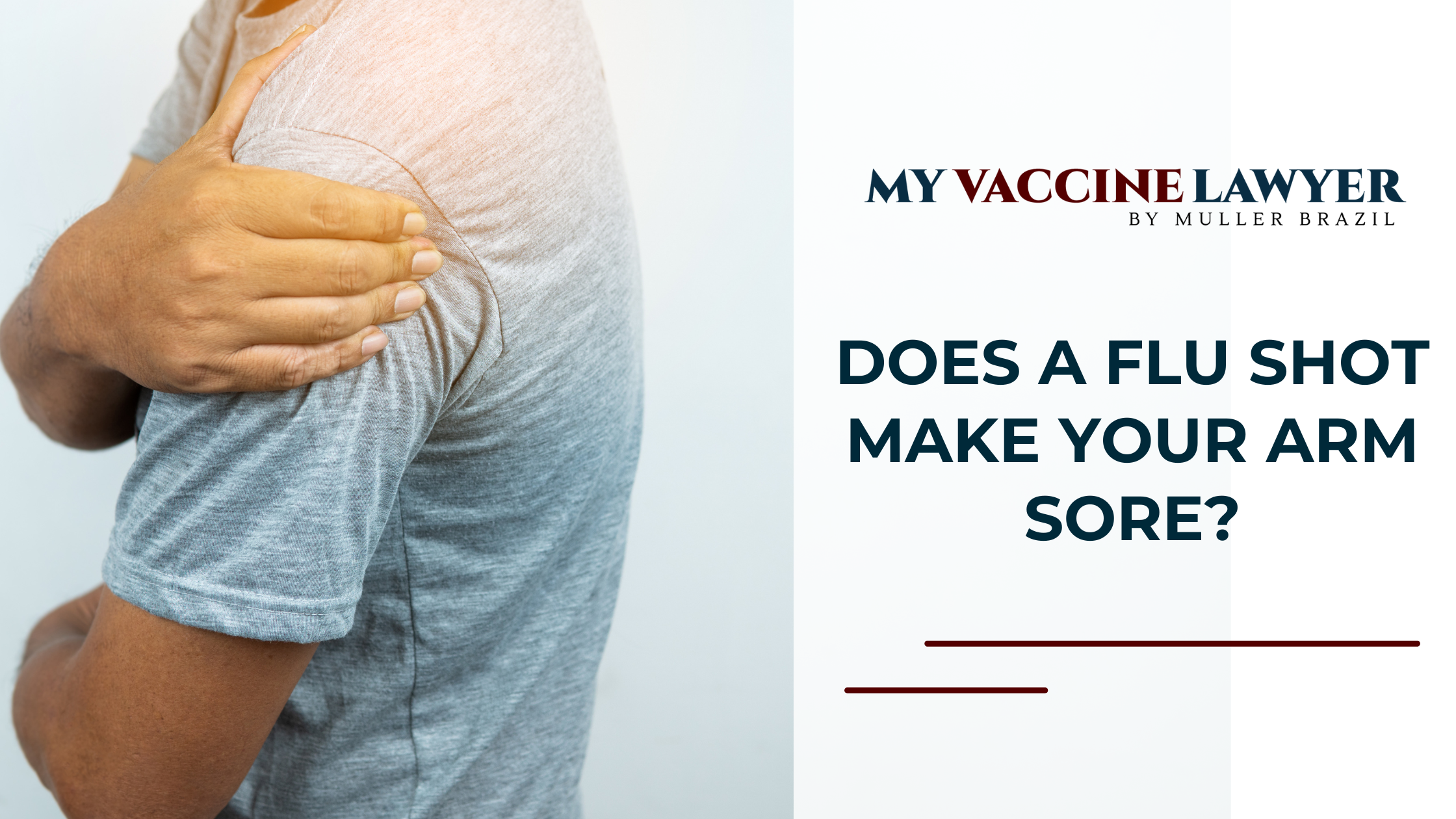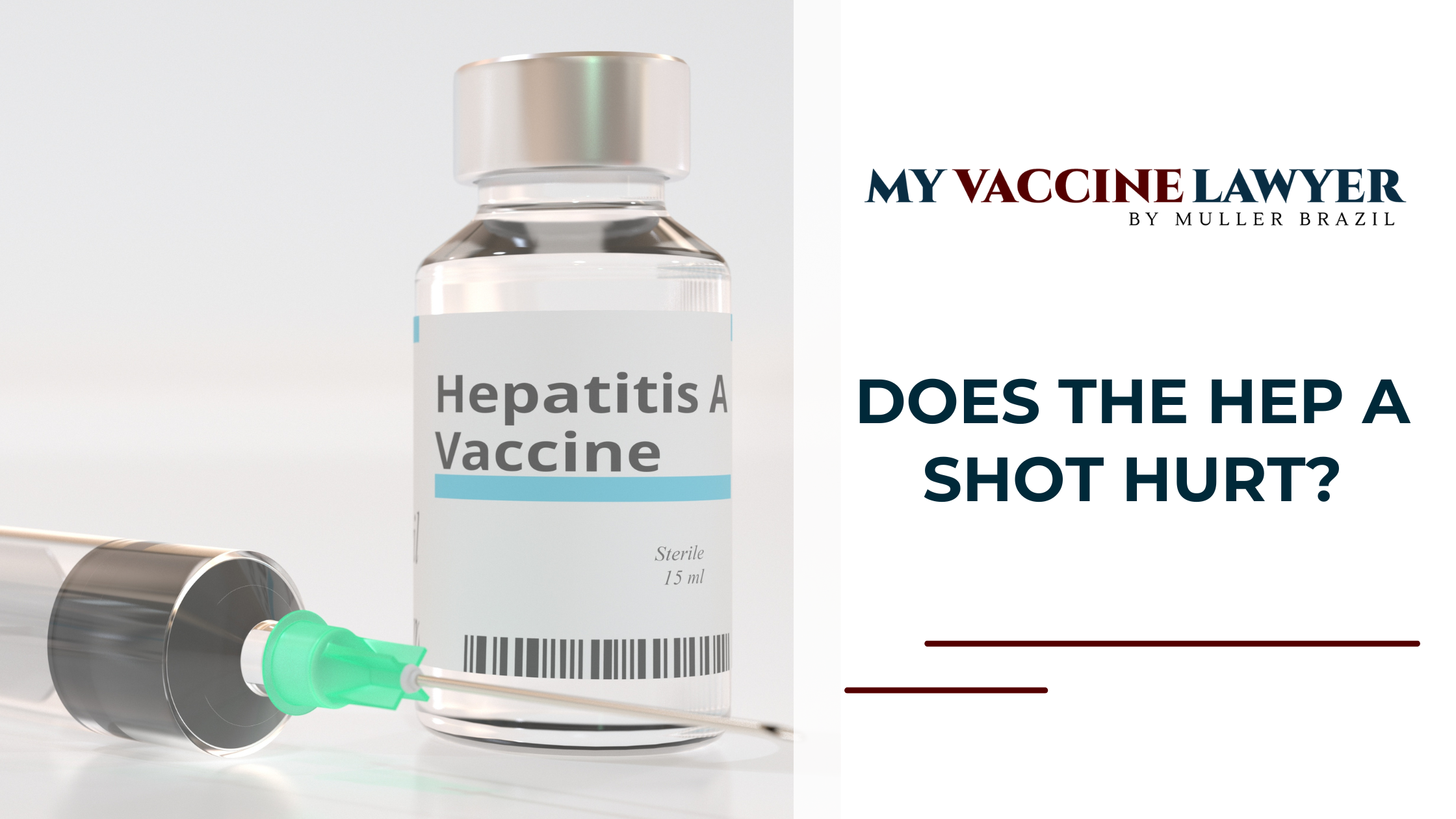Causes and Relief Tips for a Swollen Arm After a Flu Shot
Flu shots can cause arm swelling due to your body's immune response, but if the swelling worsens or persists, it may signal a more serious issue...
5 min read
Vaccine Injury Law Resources / Arm Pain / Does the Hep A Shot Hurt?
 Max Muller
:
Feb 12, 2025 4:43:30 PM
Max Muller
:
Feb 12, 2025 4:43:30 PM
The hepatitis A shot typically causes mild pain, like a quick pinch and brief arm soreness, but severe reactions are rare. In rare cases, some people experience prolonged pain, allergic reactions, or nerve-related side effects.
If you or your child are scheduled to receive the hepatitis A vaccine, you might be wondering: Does the shot hurt? While the idea of an injection can be nerve-wracking, understanding what to expect can make the process easier.
The hepatitis A vaccine is an important step in protecting against a serious liver disease caused by the hepatitis A virus (HAV). Although most people tolerate the vaccine well, some may experience injection site reactions, mild discomfort, or other side effects. But how painful is the shot? What are the potential side effects? And what should you do if you experience an adverse reaction?
In this guide, we’ll break down everything you need to know about the Hep A shot, including how it works, what level of pain to expect, and when you should seek medical help. If you or a loved one experiences a severe allergic reaction or another adverse event, knowing your legal rights is just as important as knowing the medical facts.
Hepatitis A is a highly contagious virus that affects the liver and can cause severe illness, including fever, nausea, jaundice, and even liver failure in extreme cases. The virus spreads primarily through contaminated food, water, or close contact with an infected person.
The hepatitis A vaccine is the best way to prevent infection. It works by triggering the body’s immune response, helping to develop antibodies that fight off the virus. Healthcare providers recommend it for all children younger than 1 year traveling to countries where hepatitis A is common, as well as for adults at high risk, including those with chronic liver disease or other underlying health conditions.
Skipping the vaccine can leave you vulnerable to an infection that may take weeks or even months to fully recover from. While most people recover without lasting damage, some cases can lead to hospitalization or even death, particularly in older adults or those with pre-existing liver disease.
The hepatitis A vaccine is designed to provide long-term protection against the hepatitis A virus. It contains an inactivated hepatitis A virus, meaning the virus has been killed and cannot cause an actual infection. Instead, it helps the body create antibodies that recognize and fight off the virus if you are ever exposed.
The vaccine is available in two forms:
Most people receive two doses of the hepatitis A vaccine, with the first dose providing initial protection and the second dose, given at least six months later. The shot is typically given in the upper arm by a healthcare professional, and once fully vaccinated, protection can last for at least 20 years.
Most people describe the hepatitis A shot as mildly painful, comparable to a quick pinch or a flu shot. On a pain scale of 1 to 10, with 1 being barely noticeable and 10 being severe, most report it as a 2 or 3—a brief sting followed by mild arm soreness that fades within a day or two.
For some, the injection site may feel more tender, develop slight swelling, or even form a small lump under the skin, but these effects usually resolve within 48 hours. A few individuals—especially those sensitive to injections—might rate the pain as a 4 or 5, experiencing lingering muscle soreness or stiffness in the upper arm for a few days.
Severe pain is rare, but if you experience intense discomfort, burning sensations, or ongoing pain beyond a few days, it could indicate an adverse reaction. If accompanied by rash, hives, dizziness, or difficulty breathing, seek medical attention immediately.
Take Control of Your Injury Today
The hepatitis A vaccine is a routine immunization that helps protect against serious liver disease caused by the hepatitis A virus. The vaccine is administered as a shot in the upper arm by a healthcare professional.
Most people tolerate the vaccine well, but some may experience mild injection site reactions, including:
While the hepatitis A vaccine is generally safe, some individuals experience more serious side effects beyond the typical injection site soreness or mild fever. These reactions can indicate a severe allergic reaction or another adverse event.
A severe allergic reaction can occur within minutes to hours after receiving the vaccine. Symptoms may include:
If you experience any of these symptoms, seek emergency medical attention immediately. A severe allergic reaction can be life-threatening, and prompt treatment is necessary.
In some cases, individuals may develop neurological conditions or chronic symptoms following vaccination. Reports have linked the hepatitis A vaccine to:
While a causal relationship between the vaccine and these conditions is not always confirmed, it’s important to monitor for any unusual symptoms and report them to your doctor.
If you or a loved one experiences a serious reaction to the hepatitis A vaccine, you may be entitled to compensation through the National Vaccine Injury Compensation Program (VICP). This program was established to help individuals who suffer from severe vaccine-related injuries cover medical expenses, lost wages, and pain and suffering.
At My Vaccine Lawyer, we have extensive experience handling vaccine injury claims, making sure that victims receive the support and financial recovery they need.
The hepatitis A vaccine is helpful in preventing serious liver disease, but like any medical treatment, it comes with potential risks. While most people experience only mild injection site reactions, others may suffer from severe side effects that can impact their health and well-being. If you have experienced a serious reaction to the hepatitis A vaccine, you may be entitled to compensation.
At My Vaccine Lawyer, we specialize in representing vaccine injury victims nationwide. Our legal team understands the challenges of vaccine injury claims and is dedicated to recovering the compensation that’s rightfully yours. If you believe you have suffered a vaccine-related injury, we are here to help.
Mr. Muller currently devotes the majority of his law practice to aggressively fighting for the victims of unsafe drug and medical device injuries, as well as vaccine injuries and vaccine reactions involving the flu shot, TDaP/DTaP vaccine, and more. He has handled hundreds of SIRVA injury cases (shoulder injury related to vaccine administration), especially those involving bursitis, tendonitis, frozen shoulder, and rotator cuff tears. Mr. Muller also handles cases where vaccines caused serious nerve injuries such as Guillain-Barre Syndrome. Mr. Muller has recovered millions of dollars in compensation for his clients in the Vaccine Injury Compensation Program.

Flu shots can cause arm swelling due to your body's immune response, but if the swelling worsens or persists, it may signal a more serious issue...

Living with Chronic Inflammatory Demyelinating Polyneuropathy (CIDP), a rare autoimmune disorder, can be life-altering.

A flu shot can make your arm sore due to muscle irritation and your immune response, but persistent pain could signal a more serious issue requiring...
